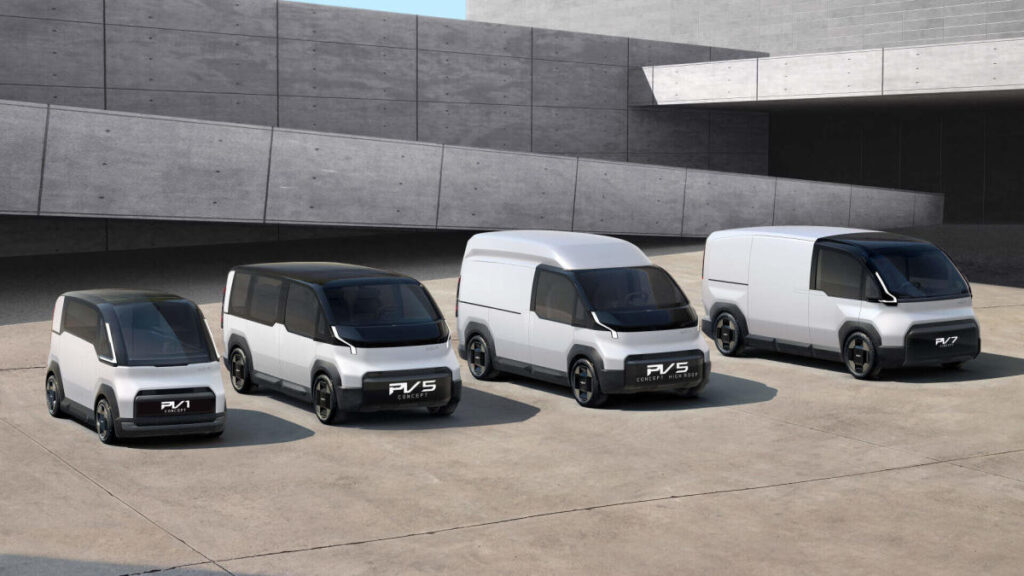Kia Corporation, a prominent South Korean automaker and part of the Hyundai Motor Group, recently announced a significant partnership with DHL Korea Ltd, the local branch of the global logistics giant DHL. This agreement entails the development and supply of battery-powered delivery vans based on Kia’s innovative Platform Beyond Vehicle (PBV). As part of this initiative, Kia is actively constructing a manufacturing plant in Gyeonggi province, South Korea, with plans to produce these electric PBVs starting in 2026. The production facility is set to have an initial capacity of 150,000 units per year, equipped with cutting-edge manufacturing technologies including the E-Forest digital manufacturing systems and cellular production methods, which will facilitate a more customizable production process to meet diverse customer demands.
Under the terms of the collaboration, Kia aims to create PBVs tailored specifically to the operational needs of DHL Korea. The initial vehicle model, named the medium-sized PV5, is projected to commence production in 2026, followed by an expansion of the model lineup in 2027 with the introduction of the larger PV7. This strategic partnership is geared towards establishing a more sustainable logistics ecosystem for last-mile deliveries, which will be complemented by infrastructure developments such as charging networks and comprehensive service warranties. The collaboration highlights Kia’s commitment to leveraging its PBV technologies to optimize logistics operations for its partners, thereby enhancing efficiency and reducing the carbon footprint associated with transportation.
Looking ahead, Kia has expressed intentions to broaden its PBV partnerships beyond DHL Korea, expecting to onboard additional logistics partners in the near future. The automaker aims to foster a collaborative environment that supports total mobility solutions, which includes not only the production of PBVs but also the associated services that cater to the evolving demands of the transportation and logistics sectors. This expansive vision to enhance PBV-related cooperation underscores Kia’s ambition to establish a prominent presence in the global commercial vehicle market, facilitating the adoption of electric vehicles across various regions, including Asia and Europe.
At the core of Kia’s PBV concept is the versatility and adaptability of its electric vans, which are designed for a wide range of applications, spanning personal and business use. By integrating advanced engineering from commercial vehicle technology and innovative software solutions, Kia aspires to redefine the standards of modern commercial vehicles. The PBV concept emphasizes flexibility, offering various configurations, layouts, and interior designs that can be tailored to meet the specific needs of users, whether for transporting goods or carrying passengers.
Kia’s commitment to this innovative direction is evident in the vision laid out by its executive vice president, Won-Jeong Jeong. He articulated the company’s dedication to enhancing business productivity for its partners by supplying PBV models that are meticulously optimized for logistics operations, thereby actively participating in the electrification of transportation. This focus supports the broader goal of transforming logistics practices into more sustainable and environmentally friendly solutions, crucial in addressing global challenges such as climate change and urban congestion.
In conclusion, Kia’s agreement with DHL Korea marks a pivotal step in the automaker’s journey towards leading the charge in the electric commercial vehicle market. By leveraging its PBV platform, Kia is not only advancing its manufacturing capabilities but also helping to revolutionize the logistics industry with sustainable transportation solutions. As the rollout of customized electric vans begins in 2026, the partnership is set to showcase the potential of innovative vehicle design and collaborative industry practices, ultimately paving the way for a greener future in logistics and mobility. As Kia expands its partnerships globally, the company’s initiatives may serve as a model for other automakers and logistics providers aiming to adapt to the changing demands of the transportation sector.

